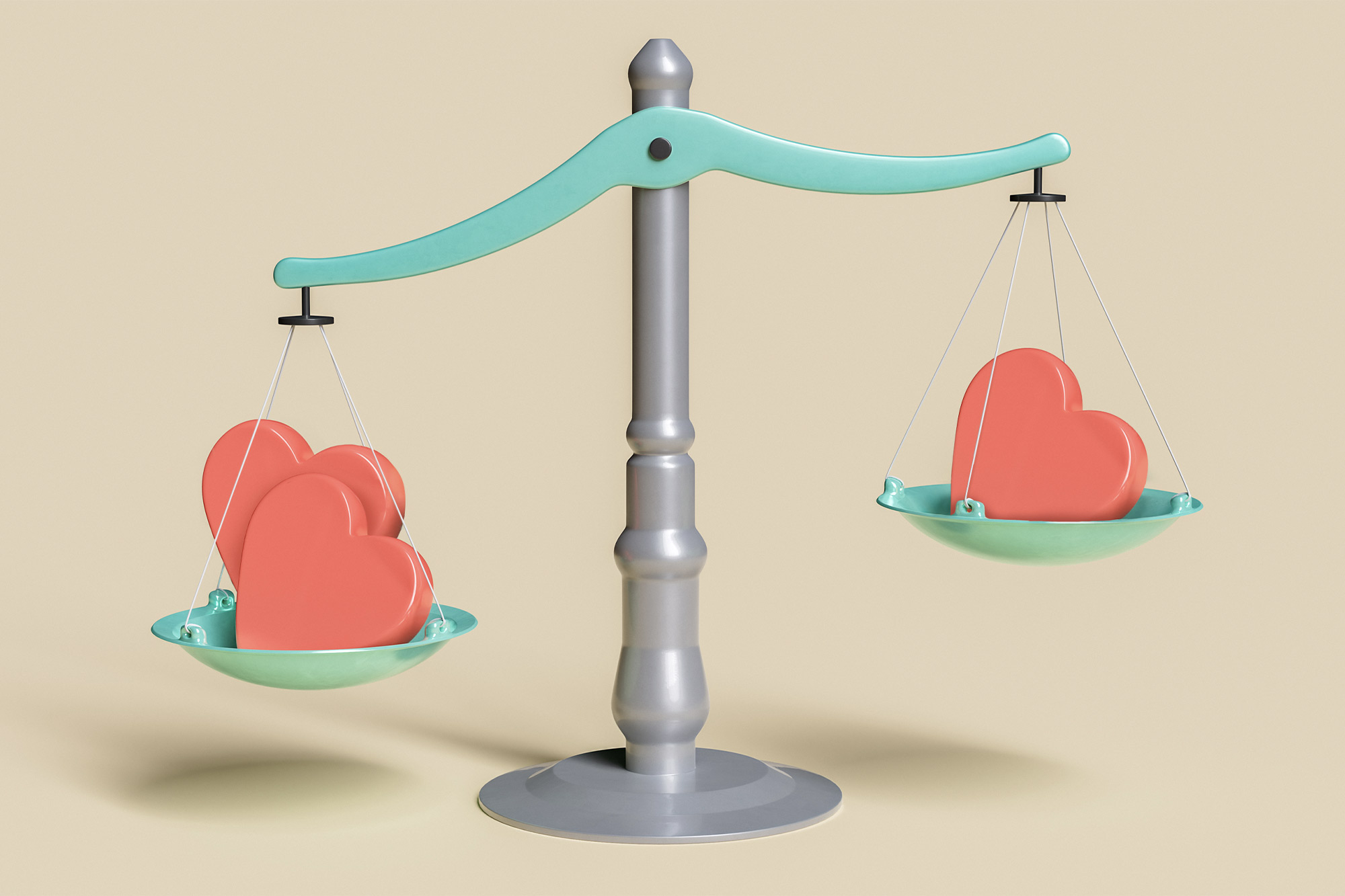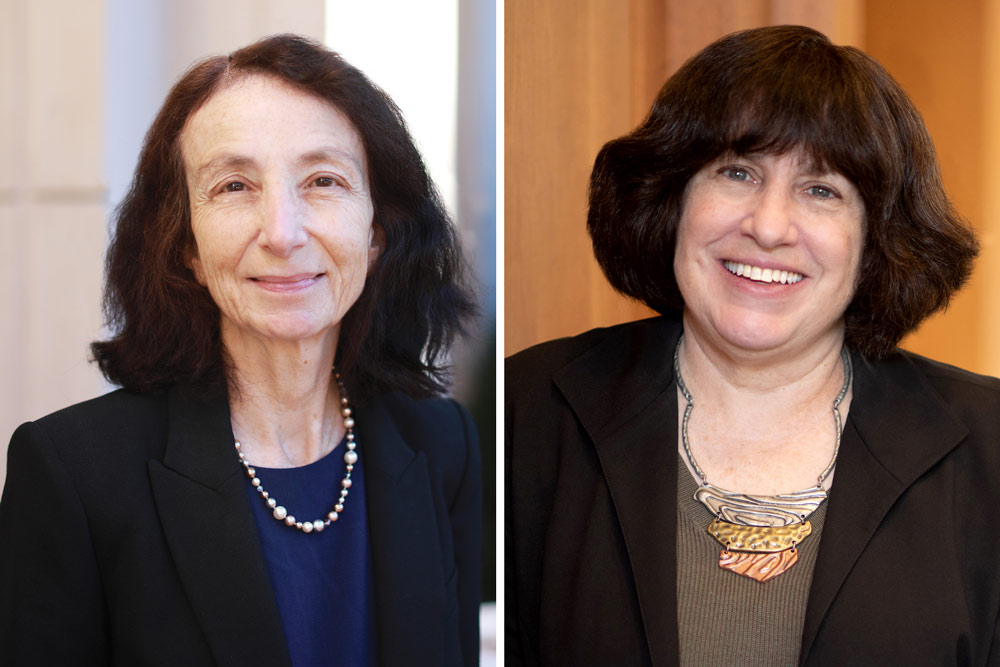This societal bias can overshadow the fact that being single is not just a social status, but also a legal one, with its own set of implications. In the eyes of the law, remaining officially unpartnered creates both benefits and drawbacks.
The Sixth Annual Nonmarriage Roundtable, which will be held on Grounds in September, will tackle many of these issues, and Cahn and Spellman hope to co-teach a fall course on Singlehood and the Law, bringing together sociological, psychological and legal materials on singleness.
Q. What are some of the legal consequences to singlehood?
Cahn: In its 2013 decision in U.S. v. Windsor, the Supreme Court noted that there were “over one thousand statutes and numerous federal regulations” affected by marital status, concerning a range of issues, from veterans’ benefits to student loans to copyright to taxes. Indeed, many programs make distinctions based on marital status.
For example, the earned income tax credit requires you to indicate the filing status you will use on your federal taxes: single, head of household, qualifying surviving spouse, married filing jointly, married filing separately. Whether they are benefits depends on the particular program; in many cases, such as eligibility as a surviving spouse for Social Security benefits, they are. I discuss this further in a number of articles, including one explicitly focused on singlehood.
Q. Are there legal detriments to staying single?
Cahn: There are estate and gift tax benefits that are available only to married couples. In addition, a spouse can qualify for Medicare and Social Security based on the other spouse’s work record. And the Federal Family and Medical Leave Act is limited to leave that is to care for a close family member (such as a spouse, parent or child) with a serious health condition, and it does not allow leave for caretaking by or for others.
Spellman: Although not a “legal” detriment per se, singles often have to pay more per person to be able to do what couples do. “Two tickets for $100 or one ticket for $60” is a common pricing scheme for all kinds of events and memberships (e.g., to a gym). Another example is that solo travel is much more expensive than paired travel, with many tour group and hotel prices predicated on double occupancy. Single-occupancy surcharges, although sensible, often cost a lot more than can be justified.
Cahn: Some people refer to a “singles tax” – the cost of living alone versus with another person.
Q. On the flip side, are there any legal benefits?
Cahn: You don’t have to share your property with anyone else. To qualify for long-term care on Medicaid, there is no one else’s income or assets to consider.
Spellman: Ironically, as Naomi points out, in the U.S. there are medical-financial reasons both to get married (for the spousal insurance benefits) and to get divorced (to be able to get Medicaid benefits without first spending down all joint assets). It’s probably not a great way to run a health care system.
Before same-sex marriage was allowed in many states, people would argue about whether same-sex, cohabiting couples should be included on each other’s workplace health insurance coverage. I said that I was against it. My friends were aghast, speechless or stuttering. But then I would argue against the whole regime of insurance-by-spouse, especially if the couple does not have minor children.
Q. What are some common stigmas single people face?
Cahn: Singlehood has traditionally been stigmatized. As Bella DePaulo – one of the founders of singlehood studies, who taught in the UVA psychology department for many years – notes in her 2023 book, “Single at Heart,” “to be single was to be sad,” and no one would choose that life.
Spellman: In her earlier book, “Singled Out” (2006), DePaulo characterizes some “myths of singlehood,” including that people think “you are miserable and lonely and your life is tragic” and that “you will grow old alone and you will die in a room by yourself where no one will find you for weeks.”
Another stigma noted by DePaulo is that singles are often viewed as “childish” or “selfish” (though the latter is usually more about being child-free). The “childish” label is crazy because single people have to take care of everything on their own – the bills, maintaining a home, paying taxes, etc. – all without expecting someone else to be sharing the load.
The misguided notion that singles have no responsibilities or important relationships leads employers to think the single people should be the ones who can stay late, do extra work on weekends or entertain surprise visits from clients without much notice.
Q. What could equitable legal recognition look like?
Cahn: That’s a complex question, given all the different ways that the law uses marital status. One simple reform would be enacting a federal law that prevents discrimination based on marital status would benefit everyone – married, those in a nonmarital relationship or single.
Q. Is there anything you would say to single people who feel self-conscious or unhappy about their singlehood?
Cahn: You’re not alone. Not only is the number of single people growing, so is the awareness of the joys of being single. Even if you are reluctantly single, you can try to find ways to enjoy your current status. Take the time to engage in hobbies, school activities and caring for yourself; spend time with friends or family; seek out interesting volunteer opportunities. Find your own sense of purpose.
Spellman: Singles often create “intentional communities.” For example, there are plenty of online groups for single people. Yes, some of them are only about how to find, or lose, a mate. But others consist of people who celebrate their single lives with each other, sharing advice, adventures and sometimes even long-term friendships.






